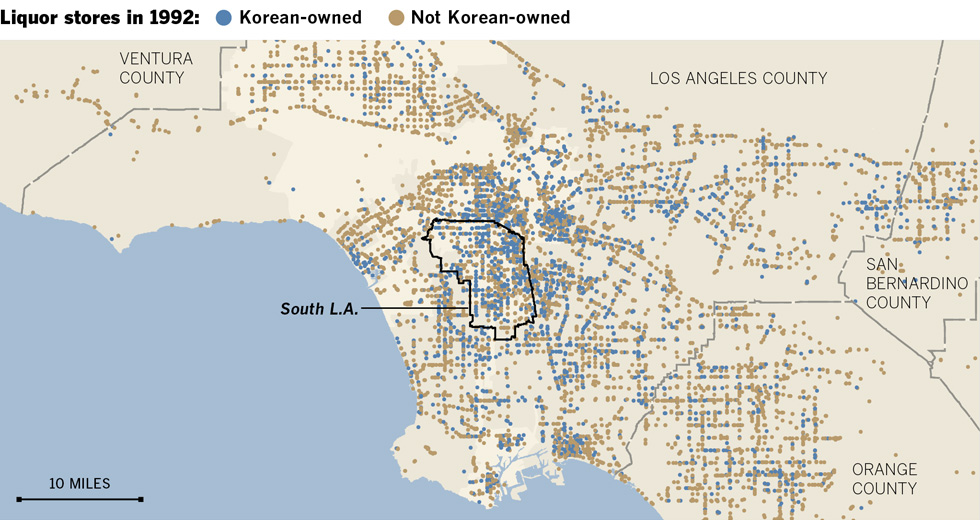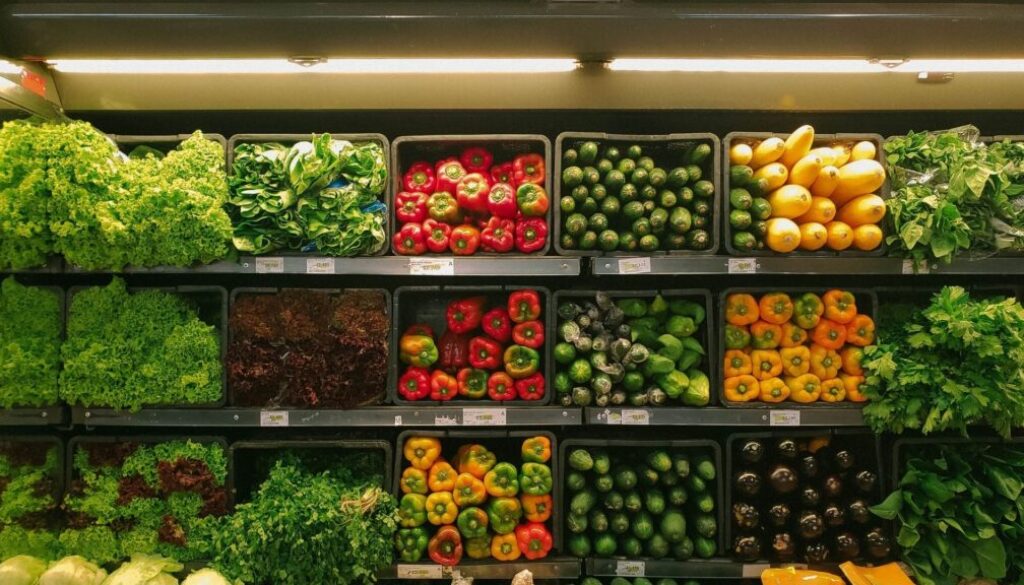Why don’t we have more neighborhood grocery stores in LA?
I traveled to London last year and stayed near the Canada Water station. I fell in love with how walkable the city streets were, and how accessible shopping, nature, and transportation were. One of the things I did frequently during my trip was walk to the local Tesco Express to pick up food I could eat at my Airbnb home.
Now we are in the middle of a pandemic, and when I take strolls through my “family-friendly” historically Black suburban neighborhood and I feel nostalgic thinking back to the convenience of easily accessible small grocery stores and social life of Londoners. It especially gets to me because the closest walkable store to my home is a liquor store – which serves nothing to a person like myself who doesn’t drink but also doesn’t fit with the residential family housing it surrounds.
According to Los Angeles Food Policy Council, with over 800,000 residents in South LA, there are 119 liquor stores and only 91 grocery stores.
Why is that?
I tried to find any articles or reports that might tell me about the history of liquor stores in Los Angeles – but I was at a loss. From what I could piece together, there seemed to be many first-generation immigrant Korean Americans who had opened up liquor stores, gas stations, and small markets across South L.A. in the early 1990s. Many of these liquor stores were burned down during the 1992 LA Riots – and since then community opposition has prevented most of about 200 liquor stores burned in the 1992 Los Angeles riots from reopening.

Even with this, many liquor stores still continue to run and have helped many of these immigrants create opportunities for their children – as chronicled by So Yun Um, an emerging documentary filmmaker in her short documentary Liquor Store Babies.
Liquor Store Babies from So Yun Um on Vimeo.
What confused me though were two questions. The first, why start a liquor store specifically, and why not more local grocery stores instead? Liquor stores don’t provide many resources to a community, they tend to exploit them. There is also a significant correlation between liquor stores and high crime rates.
Studies show that ethnic groups in the United States tend to concentrate in certain businesses and that these small, socially-isolated groups attain considerable financial success through this type of concentrated entrepreneurship, it didn’t really explain why liquor stores specifically. So, I looked into why people own liquor stores in general and learned that apparently – liquor stores are recession-proof, have a low barrier to entry, are great cash businesses, and don’t require a lot of knowledge to upkeep and manage.
So why weren’t small neighborhood grocery stores a better alternative? For that, I went back to Tesco and dug in a little further. I found that Tesco had actually had the same question – and tried to expand into the United States market in 2007 with a $500 million dollar investment. Strangely enough, they tested their first pilot effort in Los Angeles, California under the name “Fresh and Easy” – but eventually failed and left the US market.
So why didn’t LA work? Because we don’t have the environment to sustain it. Our cities are planned for automobiles and American consumers work longer hours and tend to limit their grocery shopping to once a week at stores with larger selections.
It’s a weird paradox – neighborhood liquor stores are successful and earn good money, but small neighborhood grocery stores don’t. Organizations like ChangeLab Solutions have been working with local government agencies to create more healthy retail options, but changing the structure of a city like Los Angeles will take a long time. Let’s hope it is within our lifetimes.



